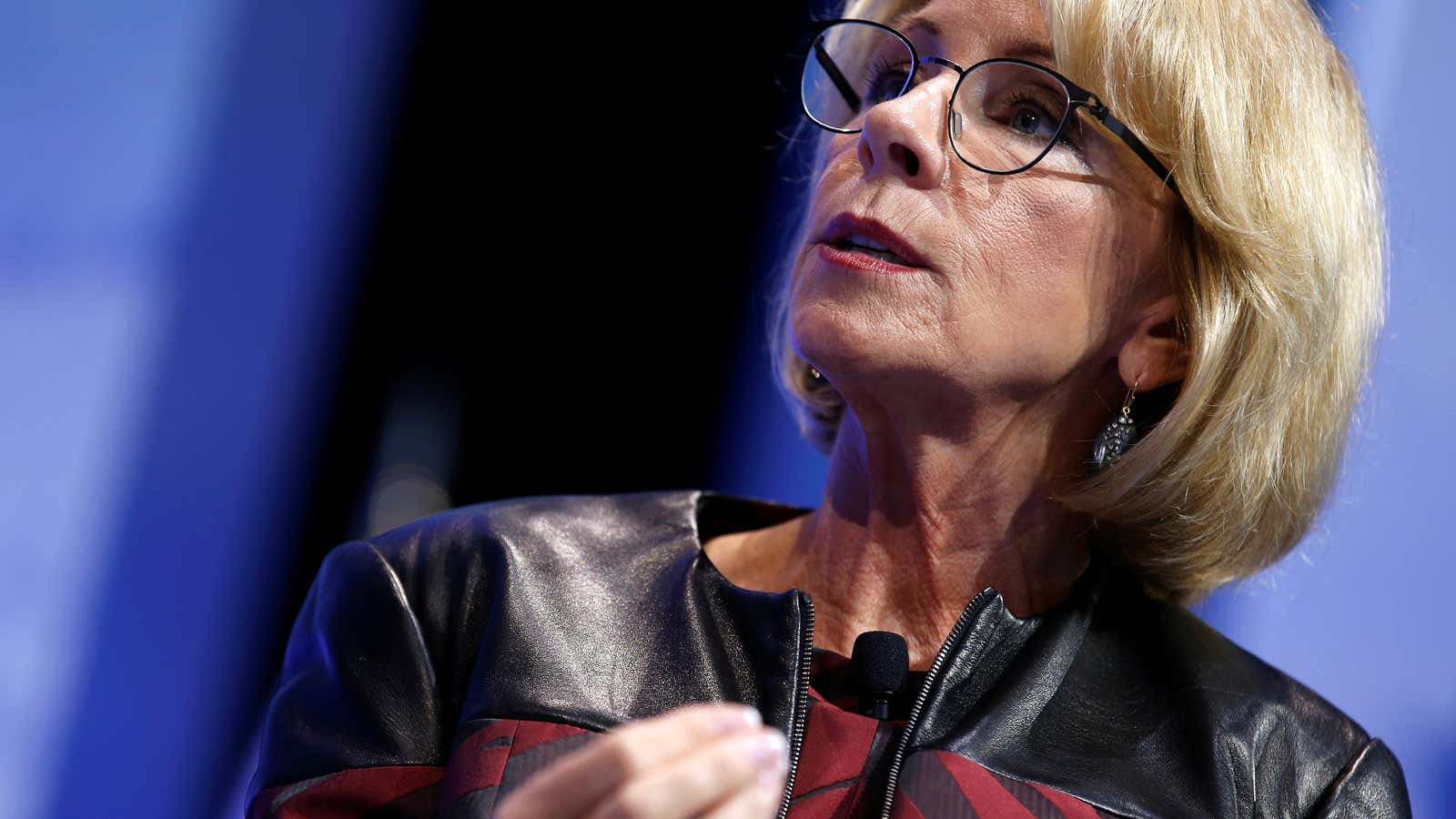School choice, the controversial idea of having government money follow students to schools that aren’t run by the government, is a bit complicated. To make it easier to understand, US education secretary Betsy DeVos—an ardent champion of the system—recently tried her hand at a relatable analogy. And promptly failed.
At a speech promoting school choice to researchers at the Brookings Institution last week, DeVos said,
Let me offer this example from a different part of our daily lives. How many of you got here today in an Uber, or Lyft, or another ride-sharing service? Did you choose that because it was more convenient than hoping a taxi would drive by? Even if you didn’t use a ride-sharing service, I’m sure most of you at least have the app on your phone.
That’s where her remarks, however earnest, first went wrong. Though most of the educated researchers in the audience may’ve been familiar with Uber or Lyft, DeVos meant for her comparison to apply to all families in the US—and most of them have never even touched a ride-sharing app. The Pew Research Center found in 2016 that only 15% of Americans have used one.
Moreover, taxi apps are overwhelmingly for the rich and elite: According to Pew’s report, college graduates are more than five times as likely as high-school graduates (29% versus 6%, respectively) to use a taxi app. The gap is similarly sized for Americans making more than $75,000 a year and Americans making less than $30,000.
DeVos herself has been sharply criticized for both her wealth and her lack of public education experience. By comparing the education of children—which most people see as a social good, its accessibility and affordability crucial to the nation’s continued success—to private corporations, she only reinforces the level of disconnect between herself and the American public. (Never mind how scandal-ridden those particular corporations are, as well.)
And yet the analogy managed to get even worse, when DeVos continued:
Just as the traditional taxi system revolted against ride-sharing, so too does the education establishment feel threatened by the rise of school choice. In both cases, the entrenched status quo has resisted models that empower individuals. Nobody mandates that you take an Uber over a taxi, nor should they. But if you think ride-sharing is the best option for you, the government shouldn’t get in your way.
She was wrong again. The government does in fact get in the way of ride-sharing apps, and often. It has a good reason, too: to protect the local taxi businesses that were established long beforehand and ensure the financial health of the city’s transportation system at large.
In her comparison, DeVos seems to have forgotten about the massive concerns educators have voiced about school choice draining money from the hundreds of thousands of public schools that already exist.
